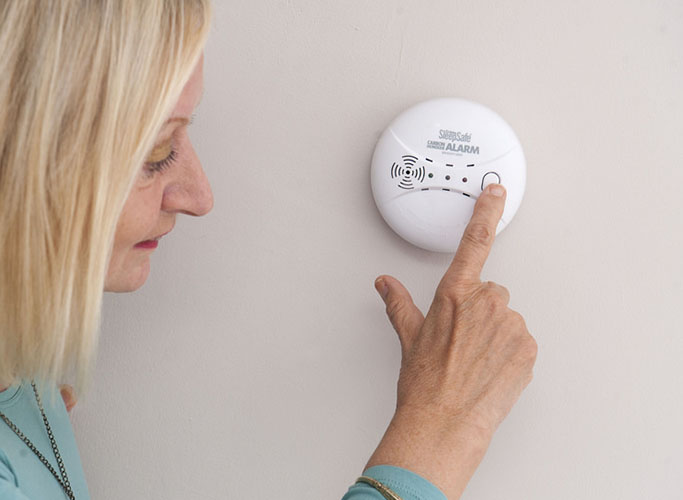Natural gas and carbon monoxide leaks from your furnace are uncommon, but when they do occur, they should be taken very seriously.
If you have a natural gas leak in your home, you will usually smell rotting eggs or the gas itself, while carbon monoxide is colorless and odorless, and can be detected by CO detectors placed in your home. Both natural gas and carbon monoxide can be deadly if left alone. Natural gas can cause explosions, and cut off the oxygen in the air, while carbon monoxide is known as a silent killer.
Make sure that you know what to do if you are ever alerted to their presence in your home.
1. Check Batteries
If your CO detector is going off, first make sure that the batteries have been changed recently. Old batteries may cause a detector to go off without any leak present.
2. Turn Off Your System and Electronics
If you are able, turn off your furnace and do not use anything that could cause a spark, such as electronic devices or lighters. Natural gas is extremely flammable, and can cause a fire or even an explosion if exposed to any kind of open spark or flame.
3. Assess Your Medical Condition
Ask yourself, and the people around you, how you, and they, are feeling. Natural gas and carbon monoxide can cause you to feel feverish, achy, nauseous, and more. These could be signs of more serious health problems caused by the gas, and it would be recommended to seek medical help as soon as possible.
4. Open Windows and Evacuate
If you are exposed to any type of gas, you should seek fresh air immediately. Open the doors and windows, and evacuate your home. Breathing in the natural gas or carbon monoxide can be deadly.
5. Call For Help
For any CO or natural gas leak emergency, you should immediately call the fire department. If it is a natural gas leak, you should also call your gas company. Once it is safe to do so, call your local HVAC company in order to fix the underlying problem if the leak has been caused by your furnace.
Natural gas and carbon monoxide leaks from your furnace can be prevented with seasonal checks to your system from your HVAC professional. Schedule your seasonal maintenance here »





















